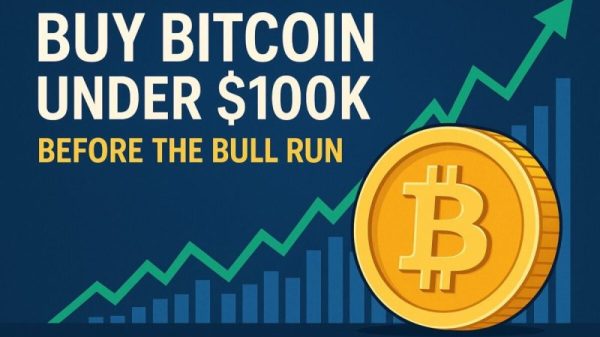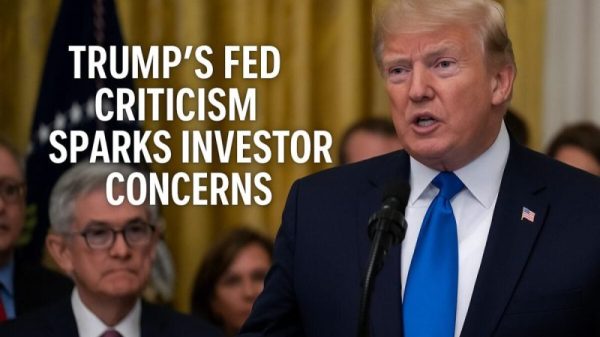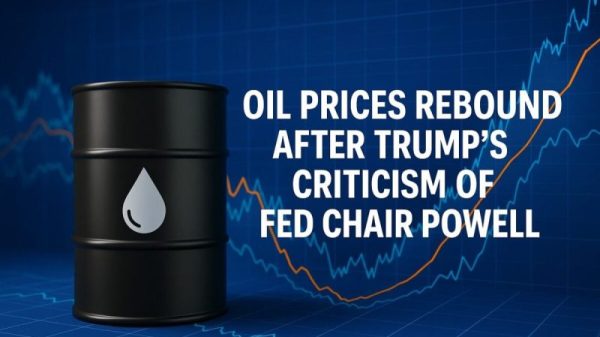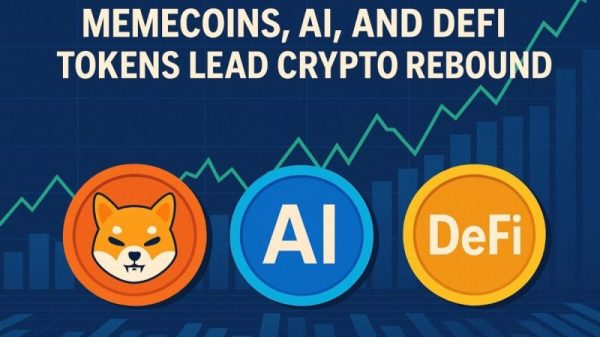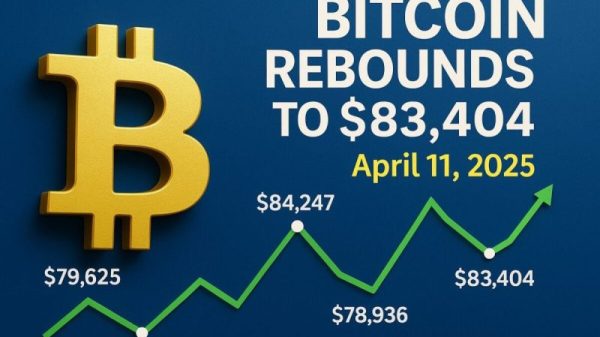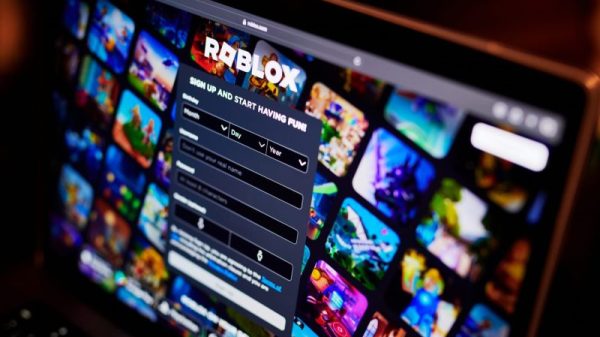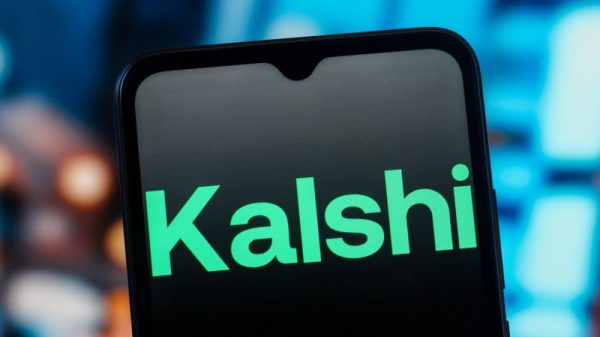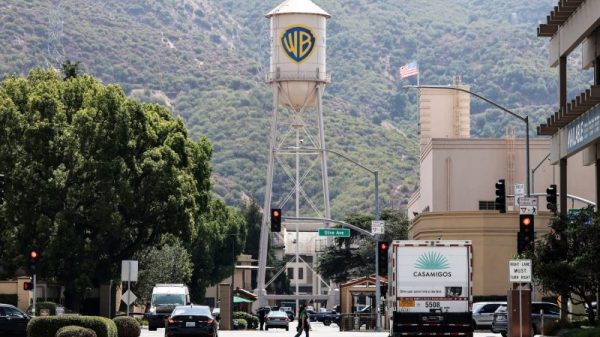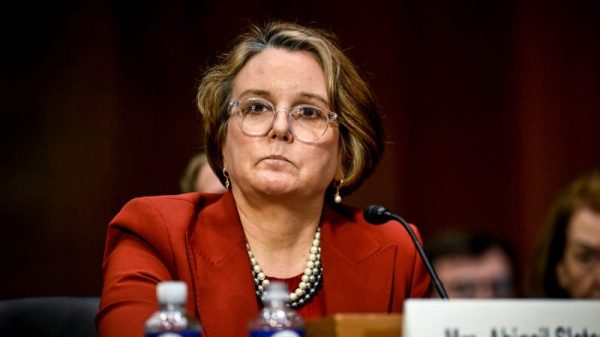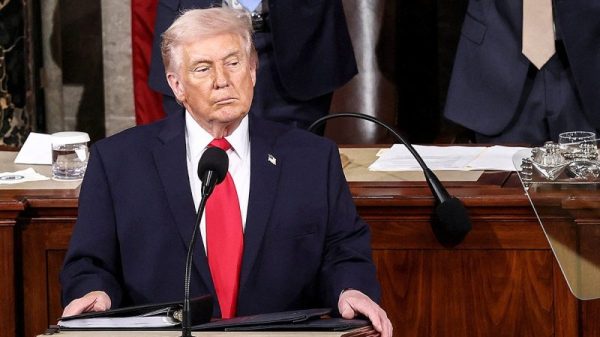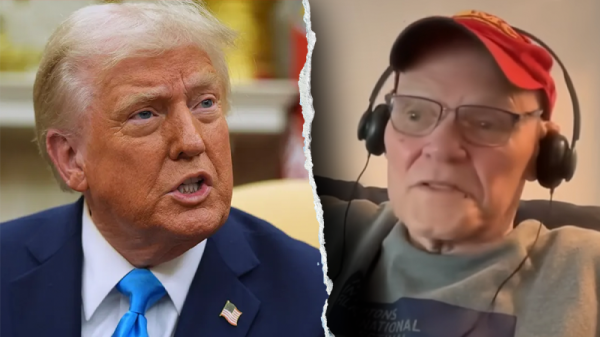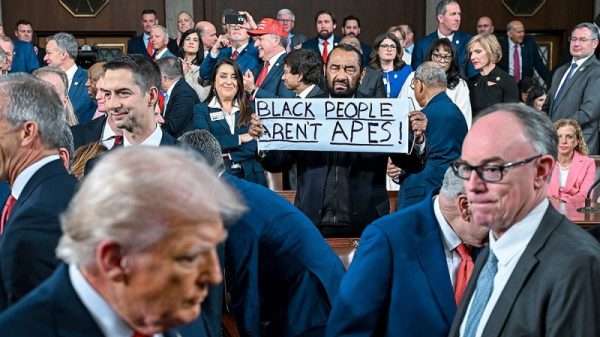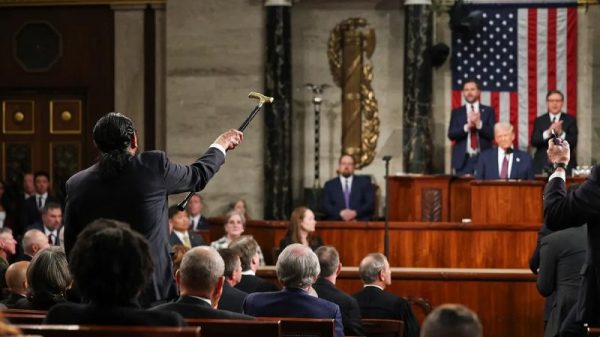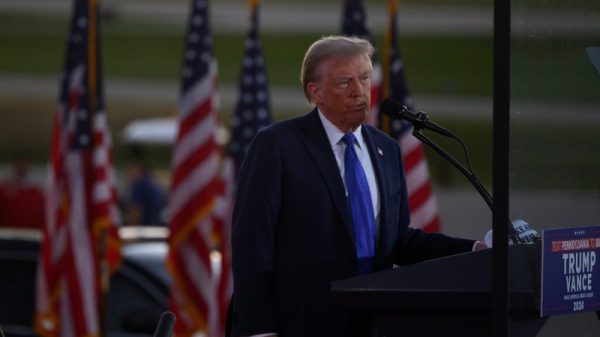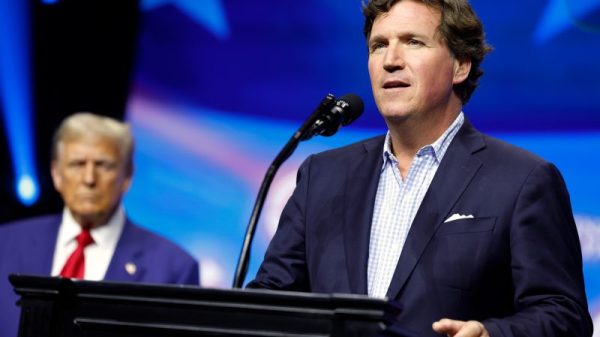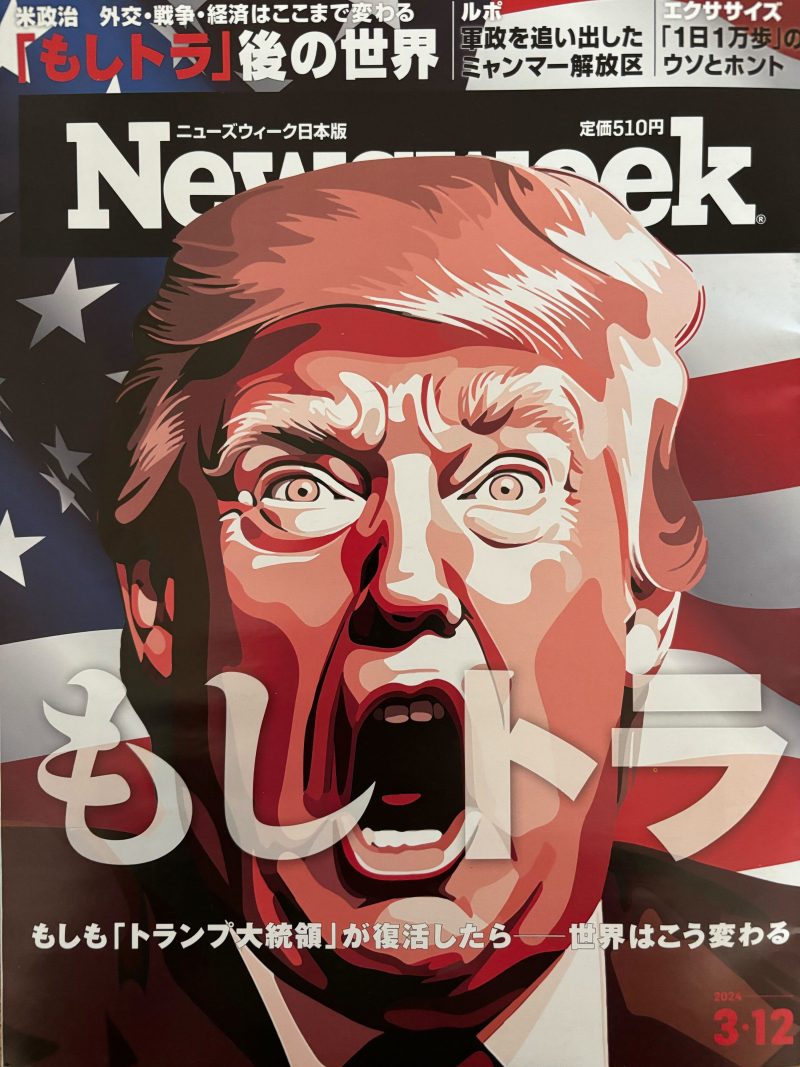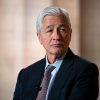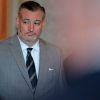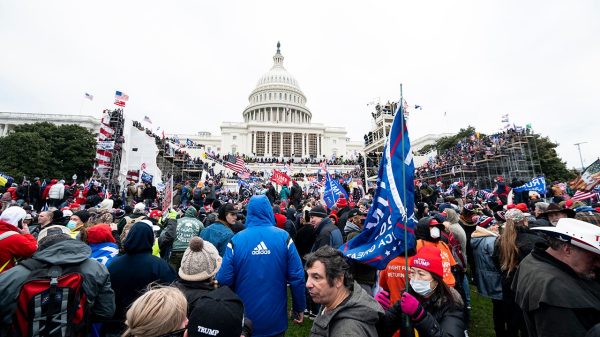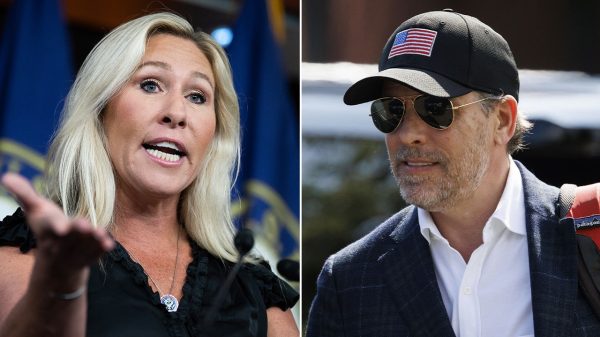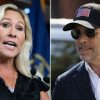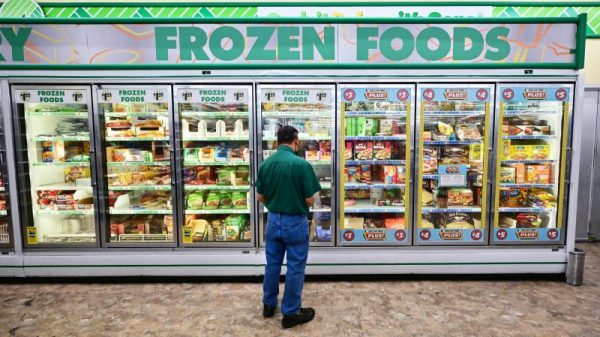TOKYO — The U.S. presidential election has spawned a viral Japanese phrase that encapsulates the mild panic brewing here: “moshi-tora,” or “if Trump.” It’s a shorthand for: What if Donald Trump wins?
Many capitals around the world are debating the “America First” president’s potential return. But in Japan — which values predictability and loves abbreviated phrases — the anxiety over Trump 2.0 has been neatly packaged in “moshi-tora,” a term so ubiquitous these days that it’s unavoidable while reading, watching or talking about the news.
The term is sure to make new headlines next week, when Japanese Prime Minister Fumio Kishida’s state visit to Washington underscores the unknown: Will this be his last time meeting with President Biden in the White House?
The saying “moshi-tora” riffs off the name of a popular book, “Moshi Dora.” (‘Tora” is the start of Trump’s name transliterated in Japanese: Torampu.)
The term has inspired spinoffs as Trump became the presumptive GOP nominee, each term snowballing in intensity as the Japanese public has became increasingly resigned to a Biden-Trump rematch. “Moshi-tora” (what if Trump) became “hobo-tora” (pretty much Trump), then “maji-tora” (it will seriously be Trump), “kaku-tora” (confirmed Trump) and “mou-tora” (already Trump).
It’s no wonder Japan is on edge. The nation is America’s most important ally in Asia and it depends on Washington for its national security, yet Trump has questioned the value of alliances. The self-declared “Tariff Man” targeted Japanese automakers and is already floating new import taxes. And his unconventional approach to some of Japan’s most pressing security concerns — including from China and North Korea — has its leaders and bureaucrats worried about what another four years of Trump may bring.
“It makes us nervous,” said Mieko Nakabayashi, a former Japanese lawmaker and a professor at Waseda University in Tokyo. “We don’t know everything yet, therefore we have to start thinking. That is the true purpose of ‘moshi-tora’: alarming ourselves to think about the unthinkable.”
Then, there’s the reality that Japan can no longer lean on former prime minister Shinzo Abe, who was assassinated in 2022, to be its conduit to the U.S. leader.
As prime minister, Abe forged a close relationship with Trump through flattery, attention and golf outings — and even nominating him for a Nobel Peace Prize, according to Trump. Days after Trump’s election stunned the Japanese political establishment, Abe flew 6,700 miles to reaffirm the bilateral alliance with the president-elect at Trump Tower and gift him a gold-colored golf driver.
That early outreach laid the groundwork for Abe’s personality-driven diplomacy with Trump. And while the charm offensive wasn’t always effective, Abe’s approach helped quell concerns about managing the unpredictable U.S. leader, said Tobias Harris, an expert on Japanese politics and an Abe biographer.
The phrase “moshi-tora” captures “that feeling of vulnerability that … because Abe acted so quickly in 2016, didn’t fester quite so long,” Harris said. “He exuded a confidence that, whether [or not] everyone bought it, it was reassuring to at least a lot of people.”
It’s unclear now which Japanese politician could carry on Abe’s mantle. Kishida, formerly Japan’s top diplomat, lacks Abe’s charismatic leadership style, Japanese media note.
Taro Aso, who was Abe’s deputy and therefore had been Vice President Mike Pence’s counterpart, traveled to New York in January and requested a meeting with Trump but could not secure one, according to Japanese media reports.
もしトラ pic.twitter.com/mSyvOdvM8b
— 宇津木洋 (@YgQA8X1DktoF6ud) March 18, 2024
“He’s not the president yet … but he’s already affecting American policymaking,” said Nakabayashi, who started using the term “mou-tora” (already Trump). “For Mr. Trump, he should be happy now to know that Japanese people are seriously thinking of his potential winning and trying to prepare for it, at least mentally.”
On television, newspapers and social media, Japanese analysts are discussing their top concerns over Trump’s return, especially whether Trump will again question long-standing treaties and international agreements and demand that allies such as Japan pay more money to keep U.S. troops stationed in their countries.
As Republicans in Congress grow weary of prolonged U.S. aid to Ukraine, a key “moshi-tora” question is whether Trump would continue support for Kyiv — and what it would mean for other Group of Seven and pro-Western nations including Japan if the United States pulls support or leaves.
The list of “what-ifs” continues: What if Trump resumes his efforts to strike a deal with North Korea’s Kim Jong Un — and sidelines Japan again from negotiations? What if Trump doesn’t protect Taiwan from Chinese aggression — something Trump has refused to answer directly in recent interviews?
What if Trump — whose love for tariffs is rooted in witnessing Japan’s rise in the 1980s — imposes higher tax rates on Japanese imports? What if he were to make another dramatic change on economic policy in Asia, like when he pulled out of the Trans-Pacific Partnership trade deal that was intended to balance China’s rising economic power?
Kenichiro Sasae, a former Japanese ambassador to the United States, said “moshi-tora” underscores a larger anxiety from Japan and other allies that the increasing political division within America is driving it inward, and away from its role to protect allies and shared values of democracy and a liberal order.
“It’s not simply a ‘moshi-tora’ issue but a fundamental orientation of where America is heading toward,” Sasae said. “Is America going to abandon us?”
But the seven-decade-long alliance remains resilient to leadership changes in either country. The key is to be “careful when we judge what he says in public, and what he really is willing to deliver,” he said.
“Let us see how all this could be worked out,” Sasae said. “This institutionally built strength [between Japan and the United States], we need to maintain — and we could maintain.”
Julia Mio Inuma contributed to this report.

